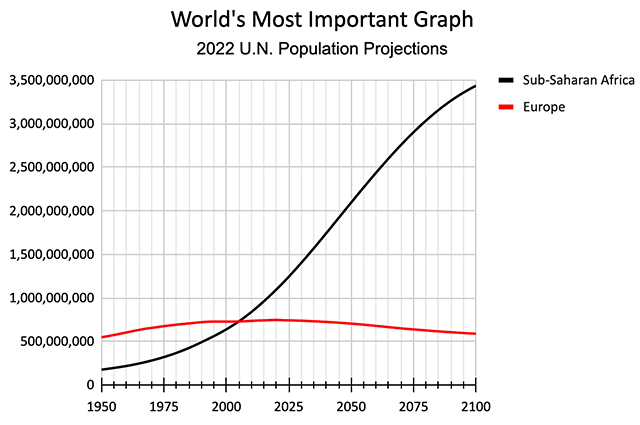The moral imperative of depopulation
Anthropocentrism is preventing humanity from dealing with the world’s cascading environmental crises. Stephen Williams reviews the work of Catholic historian Paul Collins who argues depopulation is an urgent moral imperative.
A new discussion paper on population ethics written by Catholic historian Paul Collins is as radical as it is worthy. The paper is the fourth published in Sustainable Population Australia’s discussion papers series.
Collins is the author of 15 books and is a former editor of religion and ethics at the ABC. The discussion paper is based on his 2021 book, The Depopulation Imperative, where he puts forward the case for an earth-first philosophy, rather than the failed human-first outlook....
... Collins accepts that the planet might support about 3 billion people in modest comfort, whereas the current 8 billion – still rising at about 80 million a year despite a reduced global fertility rate – has resulted in an escalating war on nature almost everywhere, even with very uneven production-consumption around the globe....
Collins’ figure of 3 billion is similar to Cambridge (UK) economist Partha Dasgupta’s 3.2 billion if living on an average of $US20,000 a year. Other ecological footprint experts, such as Canada’s William Rees (who co-founded the footprint concept) put a sustainable human population at between 1 and 2 billion. Australian science writer Julian Cribb opts for a figure of 2 to 2.5 billion “living at advanced living standards”. Leading Australian ecological economist Philip Lawn puts the maximum figure at 4 billion....
Collins gives a good defence of the well-known proposition that human numbers, multiplied by their consumption, create ecological harm.....
But Collins’ main interest is finding a new morality given the obvious existential crisis, where we can try to reduce our numbers voluntarily or let nature do it for us, brutally, and without much warning. The choice becomes one of finding the least-worst alternative given the foolish predicament we have allowed to develop since the warnings of the 1960s (and even earlier).....
Successful fertility-reduction strategies in Costa Rica, Thailand, Iran or Bangladesh are better guides than coercive strategies that pronatalists focus on....
However, strong family planning programs, if started soon in Africa, could potentially lead to 1.1 billion fewer people in 2100....
Related
The World's Most Important Graph - 2022, by Steve Sailer, 10 July 2022:
US Population Driven to Double by Mass Immigration

